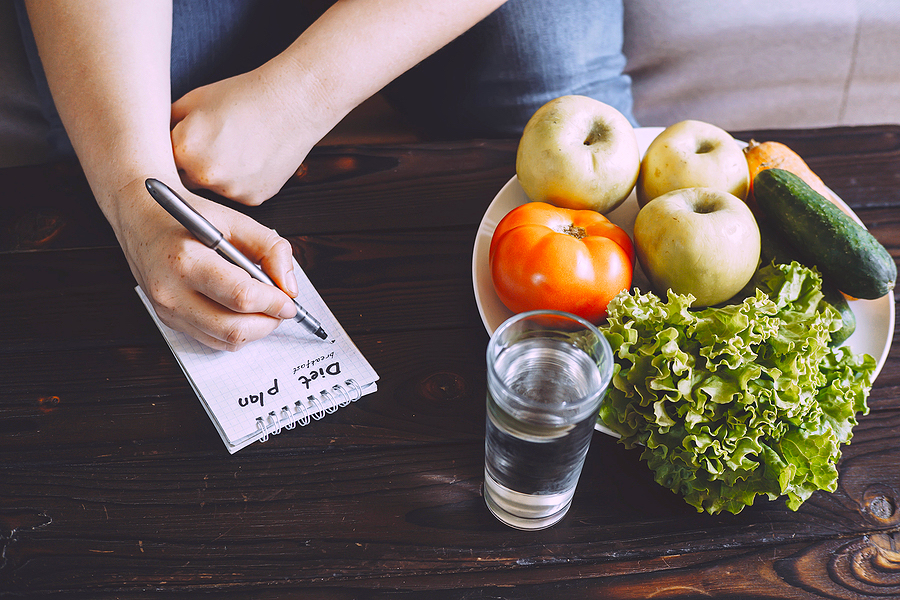A friend sent me a message this week that said “Happy Thanksgiving. It’s a little weird this year.” My response was “That’s an understatement.” Clearly, the holiday this week was vastly different than in years past. Many people cancelled travel plans and celebrated with their immediate household members only, seeing other loved ones through a screen, if at all.
It’s not what any of us want – but perhaps it’s an opportunity to get more of what we need. With scaled down holidays and smaller meals, we have a lot more time available to reflect on what’s truly important. The things we miss most aren’t the $10 Yankee Swap gift or the meal itself, but the traditions we’ve cultivated and the people we love.
This year has been unlike any other we’ve experienced in our lifetimes. We’ve been faced with economic challenges, limitations on where we can go and what we can do, civil unrest, and distance from our friends and family. For many, it’s been a year of loss and grieving, and a struggle to move forward in the face of that loss. But it’s also been a year of opportunity, and this holiday season I urge you to reflect on all that you have, not what you’ve lost.
Thanksgiving looked very different for me this year, as I’m sure it did for most of you. It was difficult to let go of some of the traditions that my family and I have shared throughout the years, but as we adapted to our new reality this year, my perspective shifted.
Some traditions have been held on to far longer than necessary, and have raised my stress levels much higher than they need to be. Without the pressure to keep things exactly as they’ve always been, I found myself relaxing, able to enjoy the moments as they came instead of frantically working towards some old ideal that was tough to achieve.
A friend told me that her turkey was ready almost an hour before she’d anticipated, but because she wasn’t waiting for guests to arrive, she could easily adapt. The sides were prepped and ready, so her family of five sat down to eat early, and ended up with an unanticipated empty stretch of afternoon that they filled with board games and laughter. She went to bed that evening with a sense of peace and connection instead of falling into bed exhausted and unfulfilled.
Think about your own Thanksgiving this year. Did this happen for you in any way? Were you better able to appreciate each moment and give thanks for all that you have?
The ability to embrace each moment and live for the present is difficult in modern daily life. This year has forced us all to slow down at least a little. And as that’s happened, many of us have learned some important lessons about living a healthy, fulfilling life.
Here are five lessons I keep reminding my patients to focus on as this challenging year draws to a close.
Focus on These 5 Important Lessons from 2020
1. Less stress improves health
We are understanding more all the time about the toll that stress takes on overall health. I’ve long recommended that in order to balance hormones and feel your best, women must find ways to reduce the stress in their lives. While a global pandemic certainly adds stress, some of the things we have had to do in response have great potential to reduce our personal stress and give us more time for the things we want to do instead of what we have to do. Volunteering has come to a halt for most organizations, many people are working at home which eliminates the commute and stress of sitting in traffic, and social events that sometimes fill our calendar so full it’s hard to enjoy them have dropped off. We’re doing less, so naturally we are less stressed.
To reap the most benefits from having less to do and more time to do it in, take this opportunity to block off time for yourself. It’s a great time to add exercise, yoga or meditation to your daily routine. Use some of that “found” time simply to breathe, melting away remaining stress. Give yourself permission to embrace new hobbies, such as baking, cooking, crafting, writing or reading. When you allow yourself space to find things that bring you joy while at home, you might just realize you aren’t “stuck” there at all!
2. Outdoors is the healthiest place to be
One of the best things about this pandemic, in my view, is the abundance of time people are spending outside getting fresh air, movement and sunshine. Outdoor equipment like bicycles, camping gear, boats and campers have been in high demand this summer, and I won’t be at all surprised if winter gear takes off as well in cold climates. This might be the year you discover skiing, snowshoeing, or just spend more time with your children enjoying the local sledding hills.
Research has demonstrated how important spending time in nature is to both mental and physical health. During this pandemic, we’ve been able to more safely get together with friends or family in outdoor settings. Restaurants have set up outdoor dining. Getting outside was the best way to cope with the “cooped up” feelings that come from being home all the time. Vitamin D deficiency is a real problem for many, but getting outside in the sunshine more often combats that as well.
3. Connection is key
People are social beings. Research has shown the impact that social relationships have on health, so we know that staying connected is important, now more than ever.
We still haven’t banished the term “social distancing” but what I’ve seen happen is exactly the opposite in many cases. Patients with children have told me they are making much deeper connections as they slow down and spend more time together instead of running from activity to endless activity. Romance is more easily achieved between partners who suddenly find themselves with time to devote to each other. Neighbors are reaching out to help each other in times of need.
I’ve also heard many people tell me they’re reconnecting with old friends through letter writing, Zoom, or more frequent phone calls. With time to spare at home, they’ve stopped thinking they’ll reach out “some day” and started doing it now.
Finally, I’ve heard from more and more women that not only are they making it a point to connect with others, they’re finally finding time to connect with themselves. Being alone doesn’t always equal being lonely. Women are finding appreciation for having some personal space to reflect, journal, and discover who they are – and who they want to be.
4. Gratitude can shift perspective
It’s easy to focus on the things that we’ve lost during this tumultuous time. Traditions from childhood, Social events that we look forward to every year during the holidays, gathering with family from far away. But this year has also taught us to find thanks for the really important things – our health, economic stability, friends that help in tough times.
Perhaps we’ve learned that we can get by with a lot less than we thought we could. Many have stopped giving in to materialistic impulses, instead clearing out things they haven’t used in years. We’ve discovered that “things” don’t make us happy – relationships and connection do.
Studies have shown that gratitude can improve well-being, relationships, and health. I certainly can attest to the fact that when I take a few moments to tell someone how much I appreciate them, write down what I’m grateful for, or even just think about all that I am thankful for in my life, I feel more positive and energized.
5. The power of positive beliefs
That leads nicely to the fifth lesson this unusual year has to offer. The way that we think has so much power over our lives. This year could easily lead us down a path of negative thinking, but taking time to focus on the positive can make a big difference in our lives.
The meaning we attach to a stressful event can impact the outcome of that event. If we tell ourselves the holidays this year will be miserable and lonely, it’s almost certain that will be true. But if we instead say that this year’s holidays are an opportunity to slow down, create new traditions, and enjoy some solitude, we can emerge from this season with a renewed sense of peace and joy.
Research has supported the idea that positive thinking has power in our lives, including on our mental and physical health and well-being. The health benefits that may result from a mindset shift include longer life span, less depression, reduced stress and better coping skills, better cardiovascular health, and increased resistance to infection, such as the common cold. Positive thinking also helps us make healthier lifestyle choices.
It may seem difficult to find the positive this year, but if you look closely, there are so many things to celebrate. Start by shifting your thinking in one small way, like the fact that less guests at the table means less dishes to do. When you actively look for a positive spin, you’ll be pleasantly surprised at how much there is to be positive about.
Tips for staying healthy this holiday season
These valuable lessons can help you create a season filled with love and joy, even though it looks a lot different than in years past. The following tips will help you stay healthy throughout this season and beyond!
Be mindful of physical distance
With COVID cases on the rise again, it’s important to continue taking precautions, including keeping gatherings small, wearing masks, and keeping physical distance between yourself and those not in your immediate household. But I like to remind people that it’s physical distance not social distance. The terminology has been confusing from the beginning – and it’s an important distinction. People are social beings, and isolation and loneliness can cause serious mental and physical health issues. Stay in contact with those you love, even if you can’t physically be together. If possible, connect visually on Facetime, Zoom, or another video chat platform. At the very least, make regular phone contact to keep yourself, and loved ones who might be at risk of social isolation, connected.
Focus on natural, healthy meals made from scratch
Long standing holiday traditions can derail healthy intentions, particularly around food. When your table is brimming with carb-heavy foods that guests prepare with love and bring to share, heavy sauces, a tantalizing array of sweets, and endless bottles of wine or “signature cocktails,” staying on course is difficult.
With fewer guests at the table, it’s a perfect year to try some new, healthier recipes. You won’t have to worry about disappointing relatives by opting for a green salad instead of green bean casserole made with heavy canned soups, or fresh fruit for dessert instead of pie.
Search for lighter, healthier versions of your family favorites or try something entirely new instead. Ask your immediate family members what their favorite part of the meal is. You might be pleasantly surprised to find that nobody cares if you leave the unhealthiest items off the menu.
Stay active
Physical activity is essential to all aspects of health. Take advantage of the extra time you may have to go for a walk around the neighborhood to check out seasonal decorations. Try a new activity – maybe cross country skiing or snowshoeing if you’re in a place with heavy snowfall. Even just walking up and down the stairs or jogging in place during commercial breaks can make a big difference.
Be mindful of mental health and find healthy ways to address struggles
I’m certainly not suggesting that adapting to all of the changes will be easy. Stress, disappointment, loneliness and anxiety are all very real issues that many are dealing with this holiday season. Find ways to protect your mental health in a way that works for you. The most important thing is that you don’t push these feelings aside or ignore the difficult emotions that arise.
Give your body the nutritional support it needs
It’s so difficult to get the nutrients you need to keep your body functioning optimally. I recommend that everyone take a high-quality multivitamin daily. Because adrenal function is so important to keeping the immune system strong, you may want to consider targeted adrenal support, like my adrenal support or adrenal metabolism programs.
This is an unprecedented holiday season full of changes and new ways of being. Though it’s certainly difficult, finding new ways to stay connected to family and friends while embracing a quieter schedule and fewer demands can result in happy, healthy holidays. I appreciate you all and look forward to supporting you now and always!







